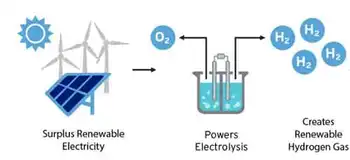Con Edison's Merger with Northeast Utilities Receives Ferc Approval
NEW YORK -- - Consolidated Edison, Inc. (Con Edison) pending merger with Northeast Utilities, Inc. received unanimous approval by the Federal Energy Regulatory Commission (FERC), which approved the merger without conditions. In its order, the Commission found that the proposed merger will not adversely affect competition and is consistent with the public interest.
"We are pleased with FERC's approval and we're glad to have passed this important milestone on the road to completing the merger," said Eugene R. McGrath, chairman and chief executive officer of Con Edison.
The companies, which announced an agreement to merge last October, received approval from their respective shareholders at special meetings held this April. To date, approvals have also been from the states of Maine, Vermont and Pennsylvania. The merger still requires approval from other federal and state regulatory agencies, including the Securities and Exchange Commission, the Nuclear Regulatory Commission, and state regulators in Connecticut, New York and New Hampshire.
Consolidated Edison, Inc. is one of the nation's largest investor-owned energy companies, with approximately $7.5 billion in annual revenues and more than $15 billion in assets. The company provides a wide range of energy-related products and services to its customers through two regulated utility subsidiaries and four competitive energy and telecommunications businesses. For additional financial, operations and customer service information, visit the Consolidated Edison Inc. web site at http://www.conedison.com.
SOURCE Consolidated Edison, Inc.
Related News

Updated Germany hydrogen strategy sees heavy reliance on imported fuel
BERLIN - Germany will have to import up to 70% of its hydrogen demand in the future as Europe's largest economy aims to become climate-neutral by 2045, an updated government strategy published on Wednesday showed.
The German cabinet approved a new hydrogen strategy, setting guidelines for hydrogen production, transport infrastructure and market plans.
Germany is seeking to expand reliance on hydrogen as a future energy source to cut greenhouse emissions for highly polluting industrial sectors that cannot be electrified such as steel and chemicals and cut dependency on imported fossil fuel.
Produced using solar and wind power, green hydrogen is a pillar of…




